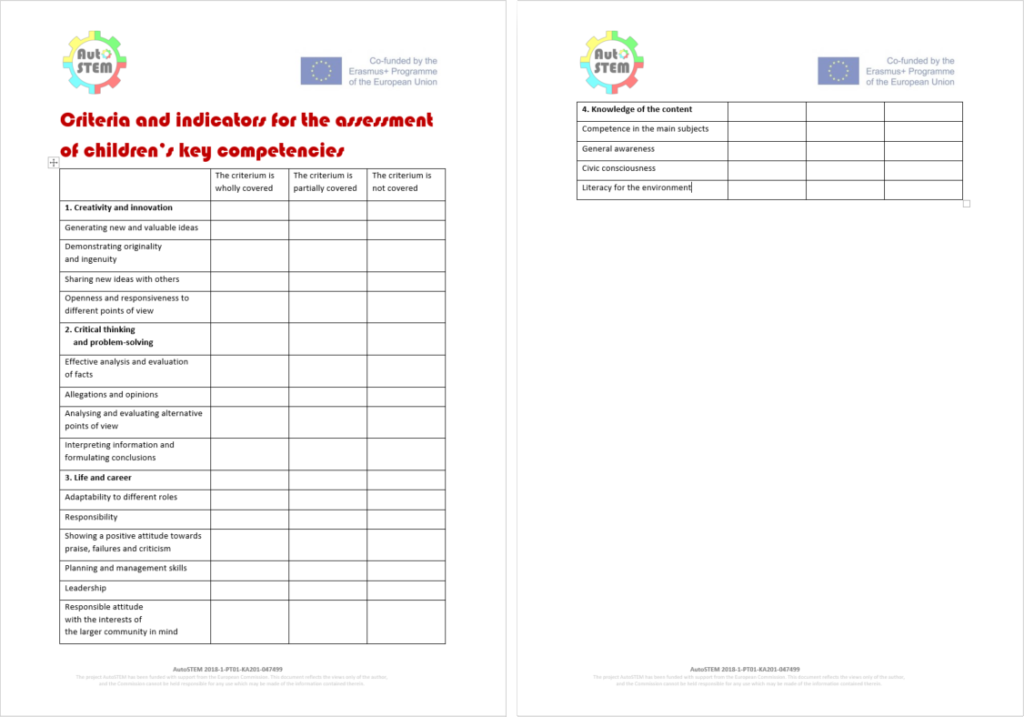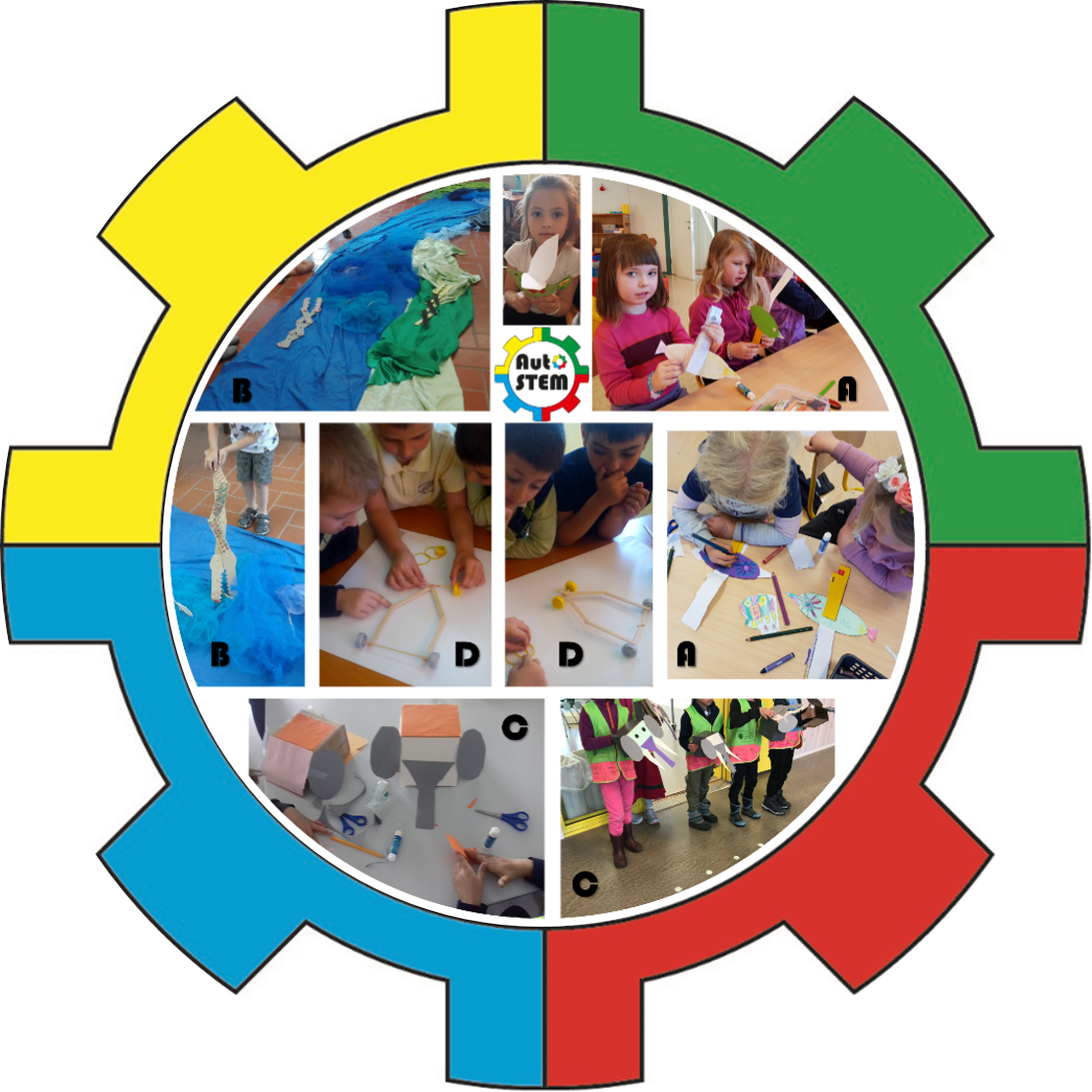Knowledge and skills
When building, exploring or playing with automata, children acquire a variety of knowledge skills. Here are some examples.
KNOWLEDGE
The children learn about properties and features of objects and phenomena by observing and analysing the automata and their movement, comparing automata and their parts by given features, classifying objects by certain features, and formulating hypotheses and summarising conclusions.
ORGANISATIONAL SKILLS
The children learn how to plan individual and group work, to distribute tasks in the group in all phases of the joint activity, to coordinate actions in the different stages of the group work, and to consider the distribution of roles and the relationship between them in the final presentation of the results of the work.
PRACTICAL SKILLS
The children learn how to perform measurements, work with various tools, design the individual parts of the automaton, and assemble the moving parts.
SOCIAL SKILLS
The children learn to listen to someone else’s opinion, express one’s own opinion, articulate arguments for their ideas, actively discuss different opportunities, assist each other in the group, seek help from others, and collaborate.
METHODOLOGICAL SKILLS
The children learn how to search for relevant information about a given topic, formulate questions and conduct interviews, solve problems, arrange the collected information in a suitable way, appropriately combine textual and visual information in shaping the results of the educational work, perform an original and aesthetically sound design of the automata, present the results of the work to the other participants in the project, and observe different criteria.
Key competencies
AutoSTEM activities aim to develop children’s key competencies. You can assess those competencies with the following template.


